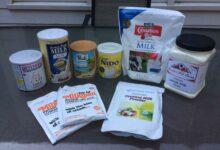
Top 15 Nigerian Food Seasonings
Top 15 Nigerian Food Seasonings: Nigeria, known for its vibrant culinary scene, offers a wide range of flavors and spices that make its cuisine truly unique. Nigerian food seasonings play a vital role in enhancing the taste, aroma, and overall experience of the dishes. From fiery peppers to aromatic herbs and fragrant spices, these seasonings bring a burst of flavors to the table, tantalizing the taste buds of food enthusiasts across the country. In this article, we will delve deeper into the top 15 Nigerian food seasonings that every food lover should know about.Top 15 Nigerian Food Seasonings
Read Also: Top 15 Best Drugs for Increasing Chances of Twins in Nigeria
👉 Relocate to Canada Today!
Live, Study and Work in Canada. No Payment is Required! Hurry Now click here to Apply >> Immigrate to CanadaThe Top 15 Nigerian Food Seasonings Are:
1. Pepper:

Pepper is an essential ingredient in Nigerian cuisine, adding heat and spice to various dishes. From the fiery scotch bonnet peppers to the milder long peppers, Nigerians use a variety of peppers to add flavor and a kick to their meals. Peppers not only provide a fiery heat but also contribute to the complexity and depth of flavor in Nigerian dishes.Romantic Love Messages
2. Onion:

Onions are a staple in Nigerian cooking, adding a sweet and savory taste to dishes. They are used as a base ingredient in many Nigerian soups, stews, and sauces, providing a depth of flavor to the overall dish. Onions not only add flavor but also help in creating a balanced taste profile in various Nigerian recipes.
3. Ginger:

Known for its distinct flavor and health benefits, ginger is widely used in Nigerian cuisine. It adds a warm, spicy, and slightly sweet taste to dishes, making it a popular choice for marinades, soups, and stews. Ginger also has medicinal properties and is often used to soothe digestive issues and provide a refreshing taste to meals.
Read Also: Top 15 Medications to Conceive Twins in Nigeria
4. Garlic:

Garlic is another common seasoning in Nigerian cooking, known for its pungent and aromatic properties. It is used to add a rich and savory taste to various dishes, including soups, stews, and sauces. Garlic not only enhances the flavor of the dish but also brings its own unique aroma and depth to the overall culinary experience.Good Morning Love Message
5. Nutmeg:

Nutmeg is a versatile spice used in both sweet and savory Nigerian dishes. Its warm and slightly sweet flavor adds depth to soups, stews, and rice dishes, making it a popular choice for enhancing the overall taste profile. Nutmeg also has a rich aroma that fills the kitchen and enhances the sensory experience of cooking and eating Nigerian cuisine.Information Guide Nigeria
6. Bay leaf:
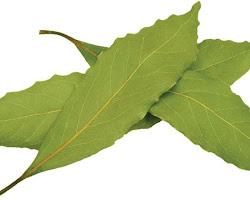
Bay leaf, with its distinctive aroma and flavor, is a popular seasoning in Nigerian cuisine. It is often added to soups, stews, and sauces to impart a subtle, earthy taste and fragrance. Bay leaves add a touch of complexity to dishes, bringing a hint of herbal goodness to the Nigerian culinary repertoire.
7. Scent leaf:
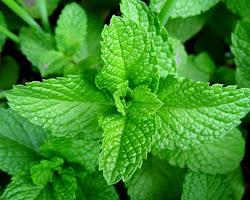
Scent leaf, also known as basil, is a fragrant herb that is widely used in Nigerian cooking. It has a distinct aroma and adds a fresh and minty flavor to soups, stews, and rice dishes. Scent leaf not only provides a burst of freshness but also complements other seasonings, creating a harmonious blend of flavors in Nigerian cuisine.
👉 Relocate to Canada Today!
Live, Study and Work in Canada. No Payment is Required! Hurry Now click here to Apply >> Immigrate to CanadaRead Also: Top 15 Reliable Transport Services in Nigeria
8. Uziza leaf:
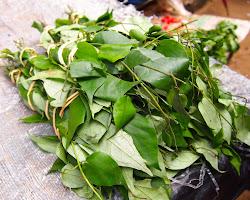
Uziza leaf is a flavorful Nigerian herb that adds a unique taste to soups and stews. It has a slightly spicy and peppery flavor, which contributes to the overall complexity of the dish. Uziza leaf is known for its aromatic properties and is often used in traditional Nigerian soups like Egusi and Oha.
9. Locust beans:NYSC Portal
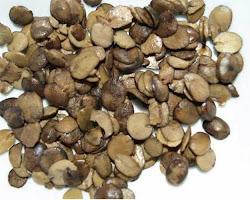
Locust beans, also called iru or ogiri, are a traditional Nigerian seasoning made from fermented African locust bean seeds. It has a strong, pungent aroma and adds a rich, savory taste to soups and stews. Locust beans are known for their umami flavor, adding depth and richness to Nigerian dishes.
10. Ehuru:
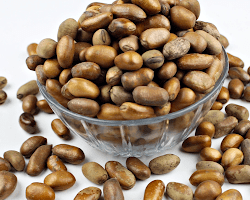
Ehuru, also known as African nutmeg or calabash nutmeg, is a spice commonly used in Nigerian cuisine. It has a warm, aromatic flavor that enhances the taste of soups, stews, and sauces. Ehuru is often used in Nigerian dishes to add a touch of warmth and depth, creating a comforting and satisfying culinary experience.
11. Suya spice:JAMB Portal
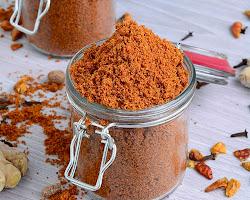
Suya spice is a flavorful blend of spices used to season grilled meat in Nigerian cuisine. It typically includes a combination of ground peanuts, chili peppers, ginger, garlic, and other aromatic spices, giving the meat a smoky and savory taste. Suya spice is an integral part of Nigerian street food culture and adds a unique flavor to grilled meats.Records that could be broken at the FIFA Women’s World Cup
Read Also: Top 15 Trendsetting Visuals in Nigeria
12. Thyme:

Thyme is a popular herb in Nigerian cooking, known for its earthy and slightly minty flavor. It is used to add depth to soups, stews, and marinades, as well as to season grilled meats. Thyme brings a refreshing and herbaceous taste to Nigerian dishes, enhancing their overall complexity.
13. Curry powder:
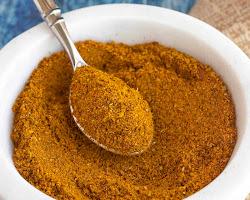
Curry powder, although not originally Nigerian, has become a staple in Nigerian cuisine. It adds a vibrant and aromatic flavor to dishes, particularly in Nigerian-style curries and rice dishes. Curry powder is a versatile seasoning that infuses dishes with a blend of spices, creating a delightful fusion of flavors in Nigerian cuisine.
14. Tamarind paste:
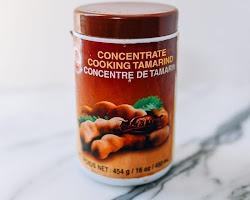
Tamarind paste is a tangy and slightly sweet ingredient used in Nigerian cooking. It adds a sour and fruity taste to soups, stews, and sauces, balancing out other flavors and creating a harmonious blend. Tamarind paste is often used in Nigerian dishes to add a tangy and refreshing element to the overall flavor profile.
15. Palm oil:
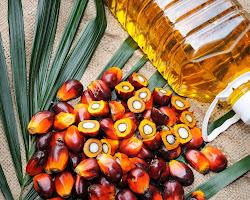
Palm oil is a widely used cooking oil in Nigerian cuisine, known for its rich red color and distinctive flavor. It is used in various dishes, from soups and stews to rice and vegetable preparations, providing a unique taste and texture. Palm oil adds a rich and earthy flavor to Nigerian dishes, contributing to their signature taste.
Read Also: Top 15 Thin and Lightweight Laptops in Nigeria
Conclusion:
These top 15 Nigerian food seasonings showcase the diverse range of flavors and aromas found in Nigerian cuisine. From the fiery heat of peppers to the earthy fragrance of herbs and the warmth of spices, these seasonings play an integral role in creating delicious and memorable dishes. Whether you’re a fan of spicy flavors or prefer milder tastes, Nigerian food seasonings offer something for everyone, elevating the culinary experience to new heights. So, next time you savor Nigerian cuisine, be sure to appreciate the incredible flavors contributed by these seasonings, as they are the key to the rich and vibrant world of Nigerian gastronomy.
Check JAMB RESULT
Check and Confirm: How much is Dollar to Naira



